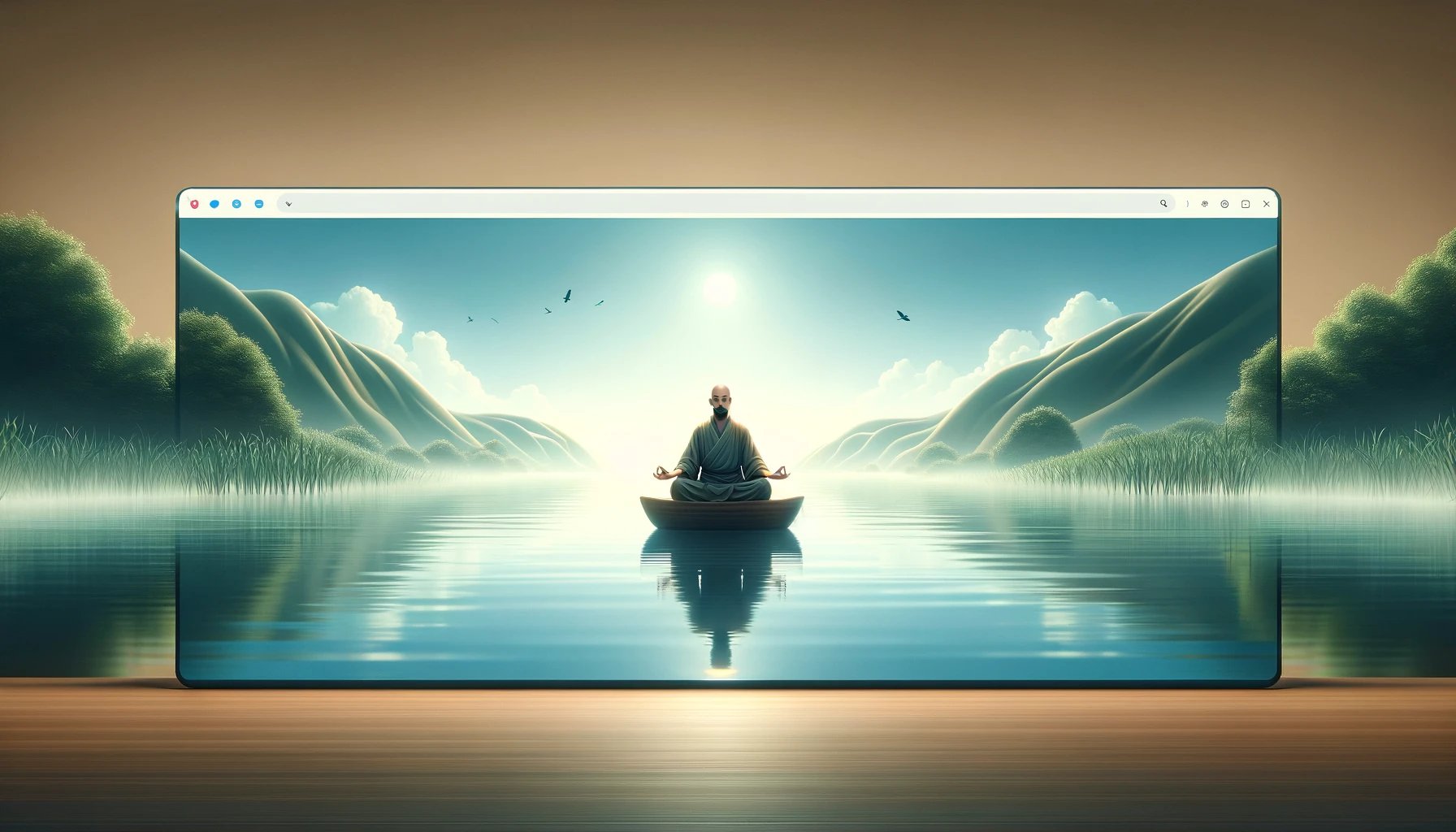A monk was meditating, eyes closed, in his boat on a serene lake.
Suddenly another boat collided with his. The monk’s mind surged with anger and raced with thoughts of revenge and frustration, but then he opened his eyes.
To his surprise, he found that the other boat was empty and had simply become untethered. The aggressor he had imagined in his mind was just a figment of his imagination.
The monk then reminded himself that other people, like the untethered boat, are not personal threats, but rather reflections of or triggers for our own fears, insecurities and projections.
From that moment on, the monk practised not taking anything personally and learned to handle his emotions with greater awareness and wisdom.
Consider:
· A friend who cancels outing plans at the last minute may trigger feelings of rejection, leading to irritation. But the friend’s own feelings of insecurity about being too weak and impulsive when it comes to drinking cause her to regularly cancel plans – it has nothing to do with you or your self-worth.
· A family member who consistently belittles your choices may trigger feelings of worthlessness, leading to anger. But the family member’s own feelings of inferiority motivate them to belittle others as an attempt to feel better about themselves.
· A manager who constantly criticises your work may trigger feelings of inadequacy, leading to frustration. But the manager’s fear of being criticised by senior management causes them to be constantly wary of their own performance as well as yours.
Like the monk who realised that the aggressor was just a figment of his imagination, the target of our anger is rarely the person in front of us but rather our mental representation of that person. In our effort to protect ourselves from perceived threats, we lock onto their avatar, composed of our rigid concepts, ideas and beliefs about them, and we often don’t see them with a fresh perspective.[i] In such cases, it can be said that it is us against ourselves (our image of them) and them against themselves (their image of us).
The way people treat us is almost always about them – not about us (and vice versa).[ii] And hurt people hurt people. Similarly, our interactions with certain other people can trigger versions of ourselves that we can’t stand or don’t know how to handle yet, causing us to avoid those individuals. We don’t avoid people we don’t like; we avoid versions of ourselves we can’t stand.
We are often triggered by ‘empty boats’, and in many cases the real aggressor tends to live inside of us: it’s fear. This understanding can help us become more compassionate and accepting of ourselves and others, leading to greater inner peace and understanding. Let fear dissolve in the light of love. [iii]
What about you?
Have you progressed towards the path of tranquility? Or do you still find yourself triggered by ’empty boats’?
As always I look forward to your thoughts below!
Philippos
PS: The above text constitutes an extract from my latest book “The MARVEL of Happiness: Principles, Stories and Lessons for Living Fully”. All rights reserved.
[i] As I mention in my latest book, we tend to imagine future events through the filters of our pre-existing memories. For example, if a past encounter with a certain type of person was negative, we may be inclined to imagine and expect an upcoming encounter with a similar type of person to turn out negative as well.
[ii] Don Miguel Ruiz, The Four Agreements: A Practical Guide to Personal Freedom (Amber-Allen, 1997). Check out the Second Agreement in the book for valuable insights on the idea of not taking things personally.
[iii] The notion that hurt people often hurt others doesn’t imply that we should tolerate others causing us pain. Instead, the passage suggests that by increasing our awareness of the fact that people’s actions are primarily about themselves and by taking things less personally, we can alleviate our feelings of hostility or resentment towards them. These negative emotions, if left unchecked, can be corrosive to our own well-being.


